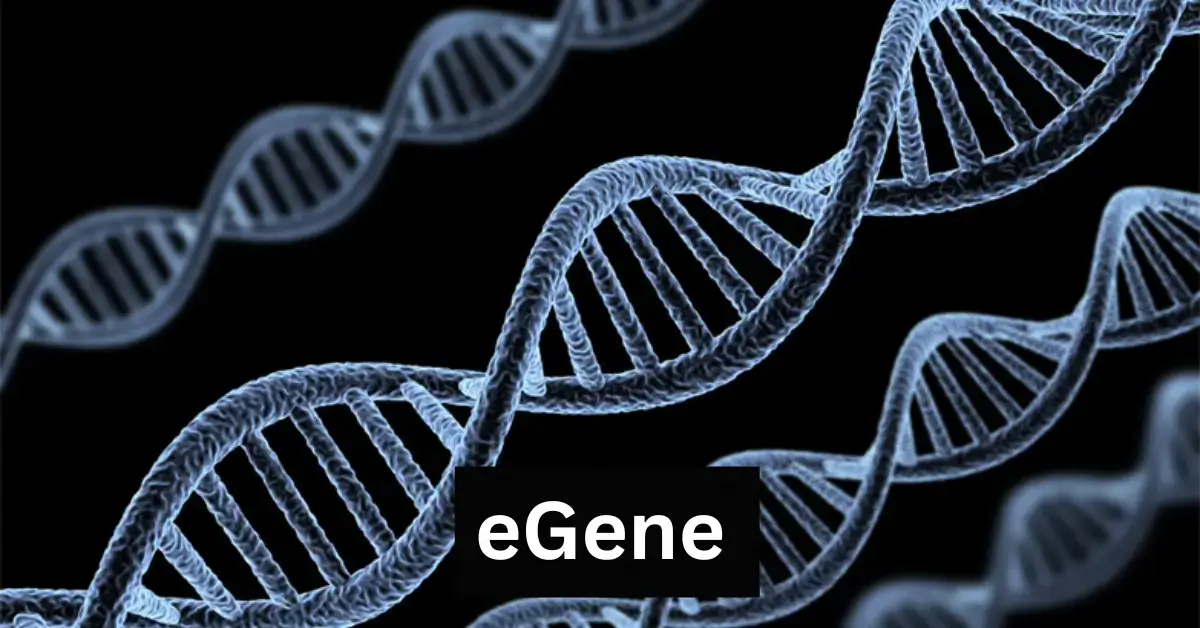In today’s fast-paced scientific world, genetic research and diagnostics require tools that are not only fast and efficient but also innovative enough to push the boundaries of existing technologies. eGene, Inc., founded in the early 2000s, is one such pioneer, providing cutting-edge solutions that have transformed the field of genetic analysis.
By integrating capillary electrophoresis technology with automated systems, eGene has made it easier for laboratories and research institutions worldwide to perform DNA separation, RNA quality control, and molecular diagnostics with remarkable precision. Their innovations have simplified what were once time-consuming processes, empowering scientists to generate data faster and with greater accuracy.
What is eGene?
eGene is a biotechnology company specializing in developing and manufacturing advanced genetic analysis tools. Their flagship products, such as the HDA-GT12 Genetic Analyzer, are used in various applications like nucleic acid analysis, genetic profiling, and PCR analysis. These tools are especially useful for high-throughput laboratories that require the ability to process large numbers of samples quickly and accurately.
The company gained significant attention due to its ability to replace outdated slab gel electrophoresis techniques with more advanced capillary electrophoresis systems. These innovations allow scientists to automate DNA separation and perform post-PCR analysis with ease, making eGene a leader in the field of genetic research.
The Founding and Vision Behind eGene
eGene’s journey began when Ming Liu, a molecular geneticist and Varouj Amirkhanian, a systems engineer, decided to tackle the inefficiencies in genetic analysis tools.
Before founding eGene, both founders had extensive experience in the biotechnology sector, with Ming Liu working as an application scientist in the bio-instrument industry. Together, they envisioned a world where genetic analysis could be automated and streamlined, reducing human error and increasing throughput.
Their solution came in the form of capillary electrophoresis, which they saw as a more efficient alternative to slab gel electrophoresis, a decades-old technology. The founding of BioCal Technology, and its subsequent merger with Centroid Consolidated Mines, led to the birth of eGene in 2004. From the beginning, the company focused on making genetic analysis tools accessible, cost-effective, and user-friendly.
eGene’s Capillary Electrophoresis Technology
Capillary electrophoresis is at the heart of eGene’s innovations. Unlike traditional slab gel electrophoresis, which requires extensive manual handling and long processing times, capillary electrophoresis is an automated process that separates DNA and RNA in narrow capillaries using electric fields. This results in faster, more accurate results, which are essential for applications like DNA sequencing, mutation analysis, and bacterial/virus DNA testing.

eGene’s technology allows laboratories to conduct digital genotyping and nucleic acid analysis in record time. What once took hours or even days using slab gels can now be accomplished in minutes. This breakthrough technology has made eGene’s systems highly sought after by research institutions, diagnostic centers, and laboratories around the world.
Also Read: Mother Gothel
The HDA-GT12 Genetic Analyzer: A Game-Changer
One of eGene’s most celebrated products is the HDA-GT12 Genetic Analyzer, a high-performance system designed to streamline genetic analysis. This 12-channel analyzer allows laboratories to process up to 2,400 samples at a time, offering unparalleled efficiency. The HDA-GT12 replaces the traditional, time-consuming methods of DNA separation with a multiplexed fluorescent detection system, drastically reducing the amount of time required to generate results.
This automated system also features disposable cartridges with built-in reagents, making it easier for researchers to conduct post-PCR analysis without worrying about complex setups or reagent preparation. By reducing manual intervention, the HDA-GT12 lowers the risk of human error and ensures high-quality, reproducible data.
Applications of eGene’s Technology in Research
eGene’s products have been widely adopted in various areas of molecular biology research. For example, their tools are commonly used in genetic profiling systems, which are critical for understanding genetic diseases, evolutionary biology, and forensic analysis. Additionally, eGene’s systems support RNA integrity testing, ensuring that samples used in gene expression studies are of the highest quality.
The company has also made significant strides in the field of PCR analysis, offering laboratories tools that simplify the detection of genetic mutations, polymorphisms, and viruses. This has made eGene’s products indispensable in high-throughput laboratories that need to process large amounts of data quickly and efficiently.
Role in Human Leukocyte Antigen (HLA) Testing
One of the key applications of eGene’s technology is in Human Leukocyte Antigen (HLA) testing, a vital process for organ transplantation compatibility and certain autoimmune disease diagnostics. HLA testing requires precise genetic profiling to match organ donors with recipients, and eGene’s HDA-GT12 analyzer offers the speed and accuracy necessary for such critical applications.
Institutions like the Center for Disease Control in Taiwan have adopted eGene’s systems for infectious disease detection, highlighting the company’s impact on global healthcare.
eGene’s Contribution to RNA Quality Control
Another significant contribution of eGene to the scientific community is in the area of RNA quality control. RNA is notoriously fragile, and its integrity is crucial for accurate gene expression analysis. To address this, eGene developed tools specifically designed to assess the quality of RNA before researchers proceed with critical steps like cDNA library construction and microarray analysis.

By providing reliable RNA quality control tools, eGene has enabled researchers to ensure that their RNA samples are intact and suitable for downstream applications, greatly improving the accuracy of gene expression studies.
Key Partnerships and Industry Adoption
eGene has partnered with leading research institutions and diagnostic centers around the world, further solidifying its position as a trusted name in genetic analysis. For example, the New York State Institute for Basic Research in Developmental Disabilities uses eGene’s systems to conduct critical research on genetic disorders. Additionally, eGene’s tools are employed by various universities and healthcare institutions for HLA testing, genetic profiling, and RNA analysis.
The widespread adoption of eGene’s technology demonstrates its value in both research and clinical settings, providing scientists and clinicians with the tools they need to make groundbreaking discoveries.
The Acquisition by QIAGEN
In 2007, QIAGEN N.V., a global leader in sample and assay technologies, acquired eGene. This acquisition enabled QIAGEN to expand its portfolio of genetic analysis tools and integrate eGene’s innovative products into its global distribution network. The acquisition marked a significant milestone for eGene, allowing its technology to reach a broader audience while benefiting from QIAGEN’s expertise in molecular diagnostics.
The combination of eGene’s cutting-edge tools with QIAGEN’s established infrastructure has enhanced both companies’ abilities to support research in fields like oncology, infectious disease, and genetics.
Future Prospects for eGene Technology
The future of eGene looks promising as the demand for automated DNA analysis and RNA quality control continues to grow. The company’s innovations in capillary electrophoresis and digital genotyping are likely to remain at the forefront of genetic research, especially as the need for high-throughput, accurate results becomes more pressing.
With QIAGEN’s backing, eGene is well-positioned to continue expanding its product offerings and reach new markets. As research in areas like gene editing, personalized medicine, and molecular diagnostics advances, eGene’s technology will play an increasingly vital role.
Quick Facts
- eGene, Inc. was founded in 2000 by Ming Liu and Varouj Amirkhanian.
- The HDA-GT12 Genetic Analyzer is eGene’s flagship product.
- eGene was acquired by QIAGEN N.V. in 2007.
- eGene’s technology is used for DNA separation, RNA quality control, and HLA testing.
Final Thoughts
eGene has revolutionized the field of genetic analysis with its innovative use of capillary electrophoresis technology. By offering automated, high-throughput solutions, the company has enabled researchers worldwide to generate faster, more accurate data. With its acquisition by QIAGEN, eGene’s products are now part of a global effort to advance genetic research and molecular diagnostics.
Also Read: How Sirler Ancient Roots Shape Modern Creativity and Growth?
FAQs
What is eGene’s primary technology?
eGene specializes in capillary electrophoresis, a technique that allows for faster and more accurate separation of DNA and RNA compared to traditional methods.
What is the HDA-GT12 analyzer used for?
The HDA-GT12 analyzer is used for genetic analysis, including DNA separation, genetic profiling, and post-PCR analysis.
Who acquired eGene, and why?
QIAGEN N.V. acquired eGene in 2007 to expand its portfolio of genetic analysis tools and integrate eGene’s technology into its global distribution network.
How does eGene’s technology contribute to RNA research?
eGene provides tools for RNA quality control, ensuring that samples are of high integrity before use in gene expression studies.
Meta Description: Discover how eGene revolutionizes genetic analysis with advanced capillary electrophoresis technology, DNA separation, and RNA quality control, now backed by QIAGEN.










